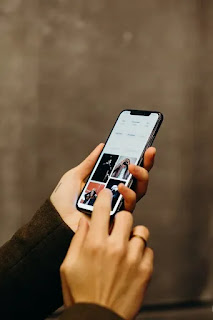LetsTalkGender.in,
a feature of the dating app Tinder, promotes discussions about non-binary
partnerships.
The
dating service Tinder has launched LetsTalkGender.in, a manual and dictionary
created in association with Gaysi Family, in an effort to promote dialogues
regarding non-binary relationships. In 2016, the dating app was the first
dating service to let users to express themselves in non-binary ways.
The
LGBTQIA+ community as a whole collaborated to build this dynamic, living
dictionary and guide, drawing inspiration from the Tinder app's 50+ gender
identities and 9 sexual orientations.
Gaysi
Family co-founder Sakshi Juneja remarked, "The only way to stay current
with how we interpret and feel gender is to continue having these discussions.
Not just within the community, but also in broader social contexts, as it
affects how we manage permission, how we access resources and institutions like
marriage, and how we relate to one another in both intimate and non-intimate
contexts. It's crucial that companies like Tinder, which have a sizable impact
and presence in society, promote the development of such spaces in order to
encourage and foster an inclusive climate where such manifestations can be
openly explored."
"Let's
Talk Gender is a long-term commitment for us that strengthens our aid to the
LGBTQIA+ population in India and promotes open dialogues about gender in the
dating sector. This expert-created living glossary offers a more intimate
understanding of identity and moves us one step closer to a society where
everyone can exercise complete autonomy over their decisions and
self-expression—values that Tinder holds dear "explains Aahana Dhar,
Tinder's Director of Communications for India.
LetstalkGender.in
addresses a variety of issues, including what the binary is, why it is
constrictive, the need for and usage of pronouns, the implications of a
partner's queerness for someone dating them, and answers to frequently asked
questions and enquirers. As one navigates the microsite, it develops into a lexicon
of gender identities and adjectives based on the lived experiences of community
members. These identities, as they appear on the Tinder app, are composed of
several umbrella terms, some of which are fluid and others of which include a
range of gender identities.

